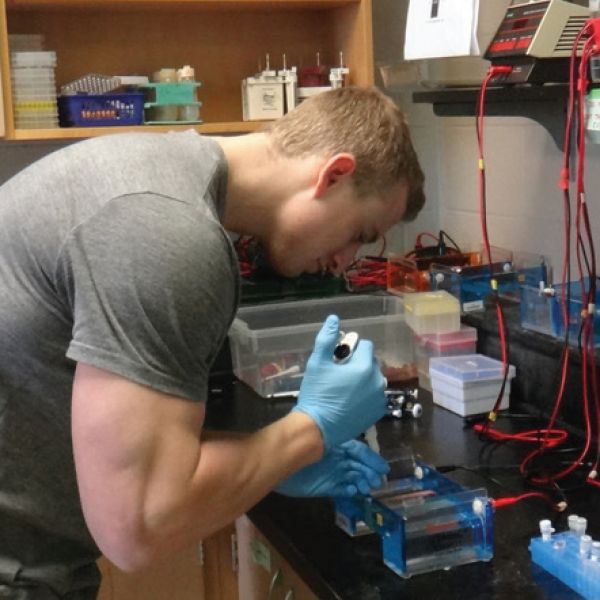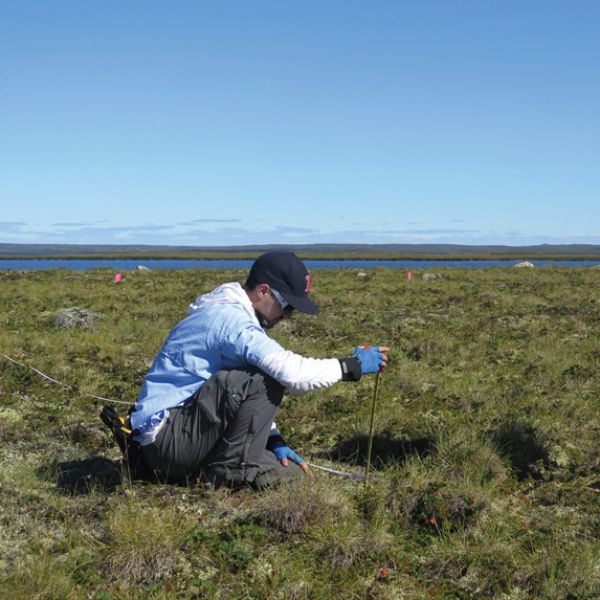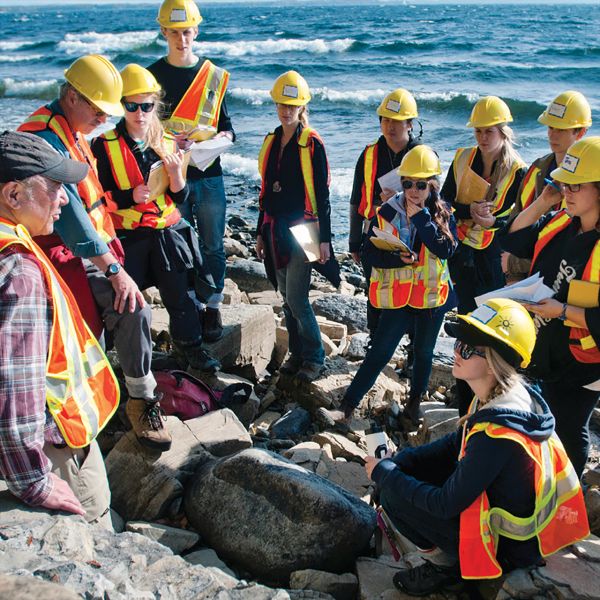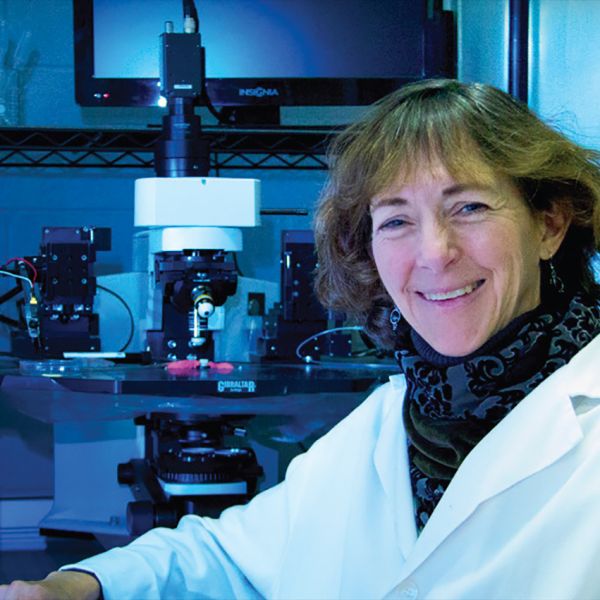Biology

Queen's Biology students have the opportunity to explore the full breadth of biology: the inner workings of cells; the integrative biology of organisms; the interactions between organisms in ecological communities; and the central roles of genetics and evolution in shaping the diversity of life. Hands-on laboratory exercises, field courses offered locally at our renowned Queen’s University Biological Station and around the world, and independent research opportunities in professors’ laboratories on selected topics are hallmarks of a Degree Plan in Biology. The mission of Queen’s Biology is to prepare graduating students to be engaged, independent, and critically thinking citizens, well-prepared for further study and with a variety of career options.
Chemistry

As one of the top chemistry teaching and research departments in Canada, we offer a stimulating learning environment for undergraduate and graduate students. Queen’s Chemistry programs have rich practical laboratory components, where you will put into practice key concepts learned from your lectures. In upper years, you can specialize in one or more of the fundamental branches of chemistry – analytical, inorganic, organic, physical, and theoretical – or explore new applications such as environmental, materials, biological, computational, or polymer chemistry.
Environmental Studies

In the School of Environmental Studies, you will acquire an appreciation of the scope and complexity of environmental systems, the ability to deal with the socio-economic dimensions of an issue, and the fundamental knowledge to adapt to changes in the future. Students will study environmental systems from both the perspective of the natural and physical sciences, while recognizing the human and cultural dimensions of the issues.
Geography and Planning

The Department of Geography and Planning is an integrated department that studies the earth's places, societies, environments and landscapes. The Department is unique in bridging the social sciences and humanities (i.e., human geography) and planning with physical geography. Geography and Planning puts this understanding of social and physical processes within the context of places and regions - recognizing the great differences in cultures, political systems, economies, landscapes, and environments across the world, and the links between them. In physical geography we study natural processes, their interactions, and both naturally and human-generated environmental issues. In the social sciences we study a variety of social problems, with a special focus on the uneven distribution of resources and services at scales from the local to the global. In humanities research we explore how human beings have made, and continue to make, the places (physical, social and metaphorical) in which they live. In all these areas, Queen’s Geography and Planning has scholars and teachers of international repute who are dedicated to making a dynamic and innovative research and teaching environment and a warm and supportive interpersonal environment for our students and faculty.
Geological Sciences and Geological Engineering

Geoscientists are the interpreters of our natural world. They bring methods such as geophysics, geochemistry, geobiology, and field geology together to understand the modern and ancient Earth. Clues concealed in rocks and fossils, minerals and fluids, mountains and sediments, glaciers and volcanoes are marshaled to understand and explain the Earth system at all scales. Managing water, mineral, and energy resources, developing sustainable strategies for industrial growth, and coping with natural and anthropogenic hazards facing increasing global populations, including climate change, all depend on a deep understanding of natural processes. Our graduates study the Earth in this context, with careers in diverse fields including, but not limited to, research, mineral and oil exploration, policy analysis, environmental science, and resource management. The programs offered by this Department focus on the whole planet and global processes as a dynamic and integrated system.
Kinesiology and Health Studies

The Kinesiology Specialization Plan is a multi-disciplinary, science-based program that focuses on human movement in the applied exercise-science fields of study such as biomechanics, ergonomics, exercise physiology, and physical activity epidemiology. While the Plan is primarily science-based, students also learn about human movement in the context of exercise and sport psychology, health promotion, and the socio-cultural aspects of physical activity. The B.Sc.(Hons.) Kinesiology Plan has been designed to meet the minimum accreditation standards for Kinesiology programs accredited by the Canadian Council of University Physical Education and Kinesiology Administrators (CCUPEKA). Admission to the Kinesiology Specialization Plan, leading to a Bachelor of Science (Honours) degree, is by direct-entry from high school.
The Health Studies Plan is a social science concentration that addresses subject areas bearing on human health. For the public health care system in Canada to function effectively both the social and physical determinants of health at the individual and societal level need to be understood in the context of health education, health policy, community health, and epidemiology. The core competencies of the Plan include health processes (e.g., implementation of programs and policies), health content (e.g., nutrition, sexuality), and supporting knowledge and concepts fundamental to the evaluation of health (e.g., behaviour, lifestyle choices). Major, Joint Honours and Minor/General Plans in Health Studies are all available, leading to a Bachelor of Arts (Honours) degree, with admission based on first-year standing and grade in the foundational social determinants of health course (HLTH 101).
Mathematics and Statistics

The Department of Mathematics and Statistics offers degree Plans designed to appeal to a broad range of students, including those interested in pure mathematics, applied mathematics, the physical and the biological sciences, teaching, actuarial studies (science), probability, and statistics. Our instructors include leading researchers and many winners of national and university teaching awards. The Department offers various plans in Mathematics and in Statistics, leading to either a BA, BA (Hons.), BSc or BSc (Hons.) degree. A Plan in Mathematics and Engineering is also offered through Smith Engineering. For full details of this program, see the Calendar of the Smith Engineering.
Physics, Engineering Physics & Astronomy

Through studying Physics at Queen’s, you will be trained in observation and experimentation, in applied mathematics and model building, and will develop the confidence to tackle new and intellectually demanding problems. This will place you at the leading edge of research and development in science and technology. This program deals with the properties of matter and energy, from everyday concepts such as force, heat and electricity, to the abstract ideas of relativity and quantum mechanics. The Department of Physics, Engineering Physics and Astronomy also offers a Specialization Plan in Astrophysics, and jointly with the Department of Mathematics and Statistics, a Specialization Plan in Mathematical Physics.
Psychology

In Psychology you will learn about basic processes of cognition and behavioural neuroscience, including the effects of brain damage or drug-induced changes on behaviour, how various neurochemicals affect behaviour, mechanisms of memory, motor control, and how we solve problems. You will also learn about child development, personality differences, how people act in groups or organizations, health-related behaviours, and various aspects of typical and atypical behaviour. Three plans are available that will lead to a BSc (Hons.) degree: the Major (Sciences) in Psychology and two interdisciplinary Plans, the Biology-Psychology Specialization and the Cognitive Science Specialization. Three plans are available that lead to a BA (Hons.): the Major (Arts), Joint Honours (Arts), and Minor (Arts). Students in all Major, Joint Honours, and Specialization Honours plans are required to complete courses in both the social and natural science branches for breadth, as well as core courses in statistics and research design.

